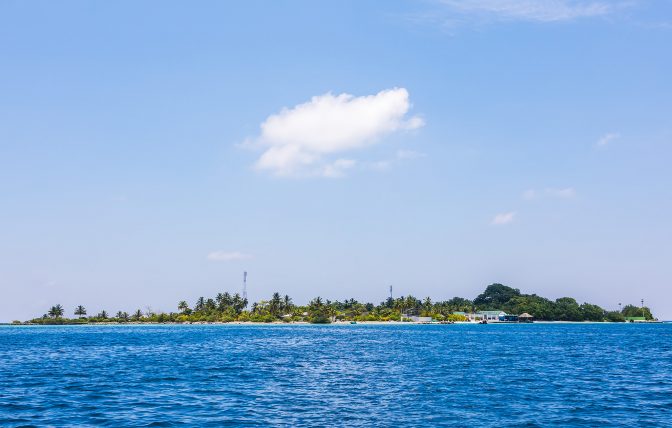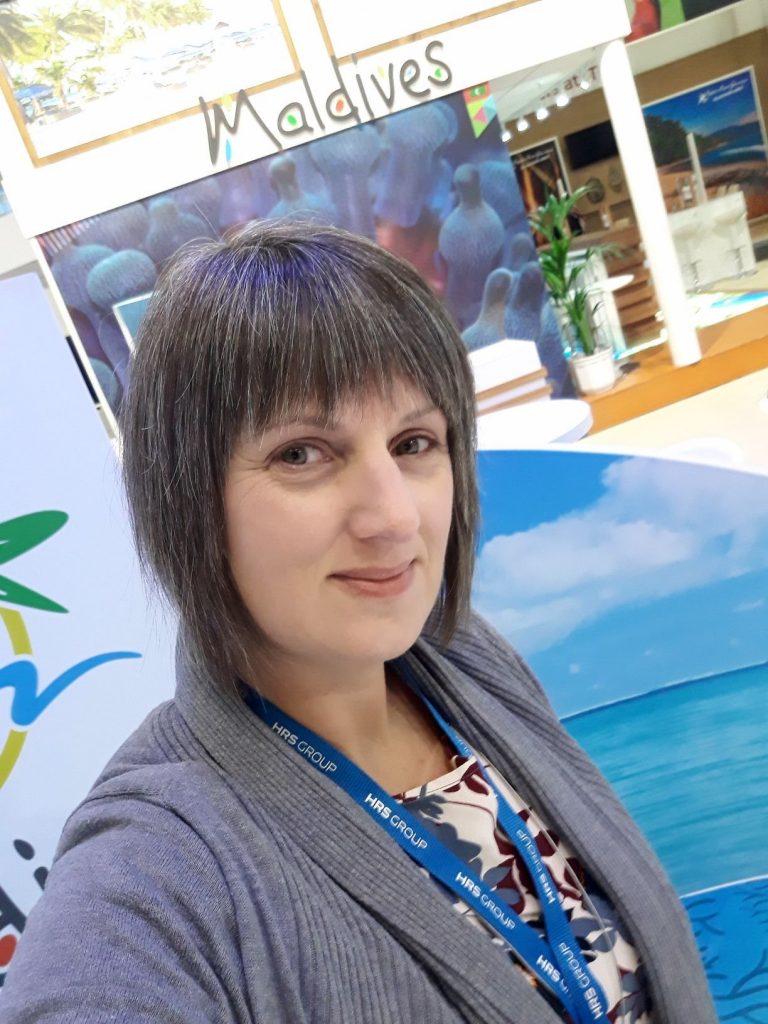


By Guest Writer Ruth Franklin
2021 it would seem has started very positively for us in the Maldives. The Ministry of Tourism revealed that as of the 4th March, 2021 a total of 200,872 tourists had been welcomed to our paradise islands. Whilst this is 41% down on arrivals for the same period in 2020 and 37% down against 2019, it is, given the events of 2020 a number to be celebrated.
This missing 40% is most likely down to the fact that Asian markets such as China, Korea, Japan and Singapore remain closed. Together with a number of key European markets once again being subject to travel restrictions.
It is no surprise that the Maldives is proving a popular destination, there are many benefits to travelling to our tropical island home. In this new age of travel it is not just about the palm lined, white sandy beaches and crystal clear waters. The Maldives has a natural geographic advantage as an archipelago. Individual islands provide a safe environment for visitors, which when combined with the Safe Tourism controls that are in place when entering and leaving have ensured safety and risk managed environments for tourists, tourism employees and local communities.
The Maldives is now set to attract 1.5 million tourists in 2021, some may say a daring target, but one that should it be achieved will sit just above the arrival figure of 1.4 million in 2018 and just below the 1.7 million arrivals of 2019.
It was reported that many of the 153 resorts and Hotels that are open experienced their best ever December, some setting historical records. No doubt extensive marketing and competitive offers have played their part. But also the desire of those who have travelled to escape from the challenges of the past year, seeking not only a safe destination but the warmth of the sun on their skin and soft white sand between their toes will have been a factor.
Not all arrivals however, are resort bound. They could well be headed to a local island. Pre the events of 2020 the guesthouse industry was a rapidly growing sector, popular with budget and mid-market tourists and responsible travelers.
When laws changed back in 2011 to allow guesthouses to operate on islands outside of the capital there were just 38 properties offering 659 beds. Jump forward to 2015 and there were 315 properties across 19 Atolls and 66 islands, offering 4649 beds; 14% of the total tourist beds available in the Maldives. By 2018 the number of beds had almost doubled to 8563, offered by 521 properties and contributing 19% of total tourist beds available. As 2020 started there were 550 registered guesthouse properties accounting for 20% of total bed nights.
The guesthouse sector of the Maldives reopened on the 15th October 2020, with properties within Greater Male (Male, Hulhumale and Villimale) not able to reopen until the 14th December 2020 due to continued restrictions within the capital area.
As of the 9th March there are 371 approved guesthouses in operation, across 17 Atolls and 50 islands. They account for 15% of the total beds available in the Maldives.
37% of operational guesthouses can be attributed to 5 islands: Hulhumale (35 properties), Thoddoo (32), Maafushi (28), Ukulhas (22) and Thulusdhoo (18).
Why these islands in particular?
– Hulhumale falls within the capital area and is considered a transit location as well as a city break base.
– Thoddoo has always been a popular island for the Russians and Russia is currently the second largest source markets for the Maldives.
– Maafushi led the development of local guesthouse tourism and has over the years proved itself to be the ideal destination to discover the Maldives on a budget.
– Ukulhas over recent years has grown to be another budget tourist hub with a growing tourism infrastructure.
– Thulusdhoo potentially preparing for surf season which starts next month in the Maldives.
Only 17% of operational guesthouses are located outside of the central atolls of North & South Male, Ari and Vaavu. This is most likely due to the fact that outside of the central atolls, higher transfer costs have particular significance and do not support the needs of the budget tourist.
But how have these local businesses weathered the storm? What are the challenges they still face?
Will 2021 be the year of local tourism recovery? We put these questions to the guesthouse partners of Secret Paradise Maldives.
As with resorts, guesthouses are seeing new trends:
– Longer length of stay
– Guests extending their stay in country
– Last minute bookings – bookings not being made until negative PCR test result received
– Increased last minute cancellations
– Increased change of date requests
But what was interesting to learn is that OTA bookings were not as strong as pre COVID and that a larger proportion of bookings were being made direct. Over 50% of properties reported that they were experiencing strong repeater business from guests who could travel. With repeater guests who were unable to travel in touch and cautiously booking dates.
20% of properties reported that guests were using the Maldives as a work base and two properties highlighted that they have hosted number of couples who both live in different countries, for which the Maldives had provided one of the few options for them to get together after living many months apart. All guesthouses reported a wide range of challenges. Positively, this did not include lack of support from the local community who it was reported recognize the benefits of the return of local tourism. With the exception of two islands, in the main locals were comfortable with tourists being on their island providing mask wearing and social distancing were followed where required.
Common challenges included:
– Source markets not yet open
– Competition with regard to room night rates. Guesthouses have a very small margin in relation to revenue and operational costs. Low rates may provide occupancy but they do not necessarily drive profit.
– At the time of reopening transportation was a cause for concern. For many islands there was no regular public speedboats operating from and to Male but as more guest houses opened and arrival numbers increased this became less of an issue. Some properties reported concern that these issues may return during low season, if there is a low season this year in the Maldives.
– Financial burden. An accumulation of business lost in 2020 and the costs involved to reopen. These reopening costs not only included those associated with ensuring the HPA guidelines were followed, but also that after 6 months of closure electrical items that had not been in use needed servicing and in some cases replacing.
– Additional Island rules as well as those stipulated as mandatory within the HPA guidelines.
– Cost of PCR testing. All guests who stay on a local island must complete mandatory departure testing. Whilst properties understand and support the need for this budget tourists have been less sympathetic.
The challenges for those properties in Greater Male also included that due to the significant drop in late evening/night international flights there were fewer requests for transit nights. Added to this the fact that initially properties could not accept bookings from locals if the property was being offered for tourist stays. For locals who due to restrictions have been unable to travel freely outside of the capital, Hulhumale is seen to be a bolt hole for a weekend getaway.
So do guesthouses anticipate full recovery in 2021?
Unfortunately not. Average occupancy rates for January and February 2021 stood at 48%. Unsurprisingly, guesthouses located outside of the central atolls had the lowest occupancy rates, ranging from just 6% to 30%. Whereas guesthouses in North and South Male Atoll had an average occupancy rate of 60%.
Future bookings for March and April stood at an average of 30%, however, this obviously remains subject to change based on the current booking trends.
Many of the properties we spoke with are hopeful for a strong Q4, waiting on their source markets to be able to travel again and worldwide vaccine rollouts. They know they need to be patient and in the interim cost control will be the key factor to their survival.
Maldivians however are resilient and these business owners are not willing to give up. Local tourism will flourish again.

About the author: Ruth Franklin is the Co-Founder of local tour company Secret Paradise.
Secret Paradise has provided local island experiences since 2012. They annually audit their partner accommodation properties and are currently finalizing a program to support their guesthouse partners in being ready for business.